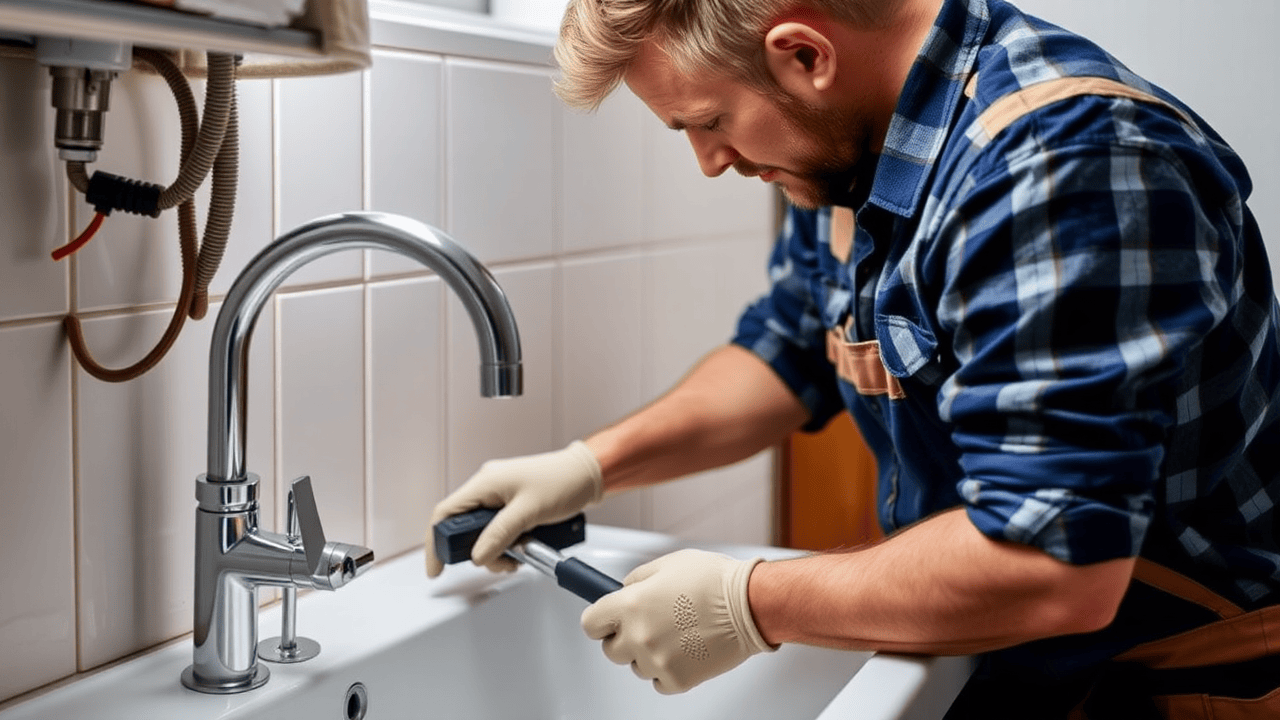
Cost Considerations for Hiring a Plumber
When deciding whether to hire a plumber for sink installation and repair, cost is a significant factor to consider. Basic service fees can vary widely based on the complexity of the job, the plumber's experience, and your location. In some cases, hiring a professional may cost more upfront than attempting a DIY installation. However, professionals often provide warranties that offer peace of mind against future issues, making it a potentially worthwhile investment.
It's essential to gather estimates from multiple plumbers to compare prices and services. Some professionals may charge a flat rate for simple installations, while others could bill hourly plus the cost of materials. Understanding the total cost ahead of time can help you make an informed decision. Choosing the right plumber can ultimately save you money and frustration in the long run, particularly if unexpected problems arise during the installation process.
Breakdown of Plumbing Service Fees
When considering hiring a plumber, it’s important to understand the typical fees associated with services such as sink installation and repair. Many plumbers have a flat rate for certain jobs, which often includes labor and materials. In addition to this, some may charge hourly rates, especially for more complex tasks. The cost can vary significantly based on factors such as the plumber's experience, geographic location, and the specific requirements of the job.
Additional charges might apply for specific circumstances, such as repairing existing plumbing issues or requiring additional parts. Emergency services often come with a premium price tag due to the immediate response required. Therefore, before starting a project like sink installation and repair, it's wise to request detailed estimates from multiple plumbers to ensure transparency in pricing and to better understand the overall investment required for the installation.
Safety Issues in Plumbing Installations
Safety is a critical concern when it comes to plumbing tasks, including sink installation and repair. Proper precautions should be taken to avoid accidents and injuries. Look out for potential hazards such as sharp tools, heavy materials, and wet surfaces, which can create a slipping risk. Wearing appropriate personal protective equipment, like gloves and goggles, is also advisable. Ensuring the work area is clear and well-lit can help minimize risks while providing a safer environment for the installation process.
Another important aspect of safety in sink installation and repair involves the handling of plumbing materials. Proper handling of pipes and fittings prevents injuries related to heavy lifting or sharp edges. When working with water lines, any potential for leaks should be addressed immediately to avoid water damage or electrical hazards. Familiarity with local plumbing codes will also guide safe practices, ensuring compliance and reducing the likelihood of future complications that could arise from improper installations.
Ensuring a Safe Working Environment
Ensuring a safe working environment is crucial when tackling any plumbing project, including sink installation and repair. Proper preparation can prevent accidents and injuries. It is important to turn off the water supply and drain any existing lines before beginning the installation process. Using appropriate safety gear such as gloves and goggles can help protect against potential hazards. Organizing tools and materials in a designated workspace reduces the risk of tripping or cutting oneself on sharp objects.
Additionally, maintaining good ventilation is vital, especially if any adhesives or chemicals are involved in the project. Anyone undertaking sink installation and repair should be aware of their surroundings and cautious of any electrical outlets nearby. A clutter-free workspace not only promotes safety but also improves efficiency during the installation process. Taking these precautions ensures that the project can be completed smoothly without unnecessary interruptions.
Local Code Requirements for Sink Installations
Local code requirements for sink installations vary significantly by jurisdiction. These regulations ensure that plumbing work complies with safety standards and promotes proper waste disposal. Homeowners must familiarize themselves with local plumbing codes before proceeding with any sink installation and repair project. Ignoring these codes can lead to fines or issues with property inspections, which could complicate future real estate transactions.
In addition to safety concerns, adherence to local codes protects the homeowner from potential hazards. Proper installation according to these regulations prevents problems such as leaks, water damage, and contamination of the water supply. When planning a sink installation and repair, consulting a licensed plumber who understands local requirements is recommended. This step can save both time and money while ensuring compliance with all necessary regulations.
Understanding Plumbing Regulations
Understanding local plumbing regulations is crucial for any sink installation and repair project. Each municipality may have specific codes that dictate how plumbing systems should be installed and maintained. These regulations are designed to ensure safety, efficiency, and proper functioning of plumbing fixtures. Familiarizing yourself with these rules can help avoid costly fines or the need for costly rework down the line.
Homeowners should check with their local building department or plumbing authority before starting a sink installation and repair. This includes verifying if permits are required for the work. Compliance with regulations not only protects homeowners but also helps maintain property values. Properly adhering to these codes ensures the completed work meets safety standards and functions as intended.
FAQS
Do I need a plumber to install a new sink?
While it's possible to install a sink yourself if you have the right tools and experience, hiring a plumber is recommended for a professional and efficient installation, especially if you're unfamiliar with plumbing work.
What are the cost considerations for hiring a plumber?
The cost of hiring a plumber can vary based on factors like your location, the complexity of the installation, and the plumber's experience. It's advisable to get multiple quotes to ensure you're getting a fair price.
What safety issues should I be aware of during a sink installation?
Safety issues include ensuring that the water supply is turned off before you start working, properly handling tools, and being cautious of heavy materials. If you're not confident in your abilities, it's best to leave the work to a professional.
Are there local code requirements I need to consider before installing a new sink?
Yes, local plumbing codes often dictate specific requirements for sink installations, such as drainage and venting standards. It's important to familiarize yourself with these regulations or consult a professional to ensure compliance.
What are the benefits of hiring a professional plumber for sink installation?
A professional plumber ensures that the installation is done correctly and safely, reduces the risk of future plumbing issues, and can navigate local codes and regulations more effectively than a DIY approach.


